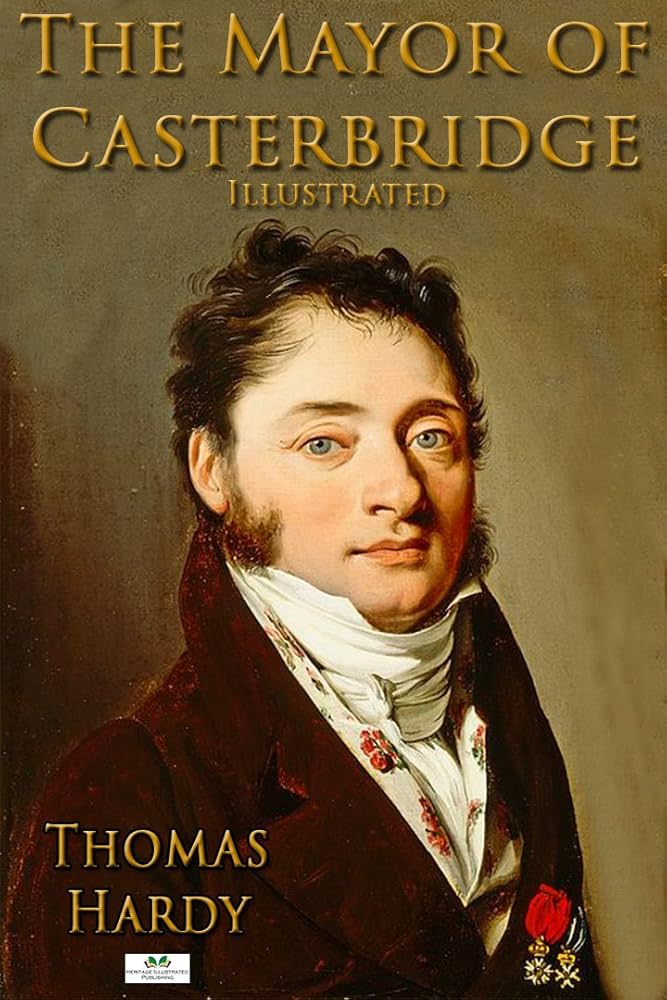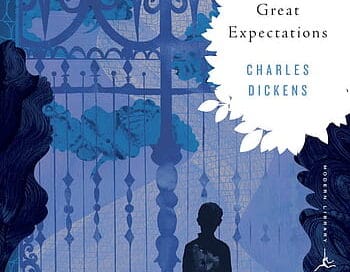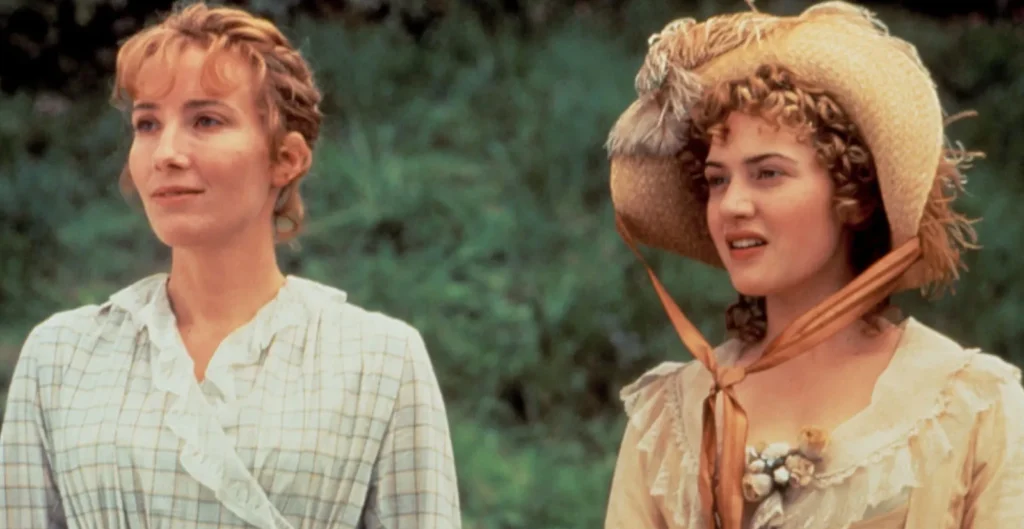The Mayor of Casterbridge by Thomas Hardy
Thomas Hardy’s The Mayor of Casterbridge (1886) is a fascinating story about human emotions, choices, and the struggle for redemption. It tells the story of Michael Henchard, a man whose life is shaped by his impulsive decisions and pride. Set in the fictional town of Casterbridge, the novel explores themes of ambition, regret, and personal growth in a way that remains relevant even today.
The Story
Michael Henchard was a poor hay-trusser, just another ordinary man walking through life with a heavy heart and calloused hands. He had a wife, Susan, and a baby daughter, and though their life was hard, they had each other.
One evening, tired, hungry, and frustrated by poverty, Henchard took his little family to a village fair. There, he drank a bowl of furmity—heavily spiked with rum—and allowed the bitterness inside him to rise. He was angry at life, angry at being stuck in a role he hadn’t chosen, and under the influence of alcohol, he did something no husband should ever do. He stood before a crowd and, in a reckless moment of cruelty and pride, offered to sell his wife and child.

People watched in disbelief. Some laughed nervously, unsure if it was a joke. But it wasn’t. A sailor named Newson stepped forward. He was kind, steady, and genuinely believed he could offer Susan and the child a better life. Susan, humiliated and heartbroken, looked at the man she had married and saw no love left in his eyes. So she left with Newson, carrying their daughter in her arms.
The next morning, Henchard woke up sober. The weight of what he had done hit him like a storm. But they were gone. No matter how far he searched, he couldn’t find them. And so, in shame and guilt, he made a vow: for twenty-one years, he would touch no alcohol. Not as a show of strength, but as a quiet punishment for what he had done.
Years Later, the Past Comes Knocking
Eighteen years passed. Henchard changed his life. He became a grain merchant, worked hard, and earned respect in the town of Casterbridge. He even rose to become Mayor. Outwardly, he was a powerful man. But inside, the wound from that one night never really healed.
Then one day, the past walked back into his life. Susan returned to Casterbridge, now a widow. With her was Elizabeth-Jane, the little girl Henchard had once lost. Believing Newson to be dead, Susan came not for herself, but for her daughter — hoping Henchard would finally be the father he once failed to be.
When Henchard saw them, his heart shook. Guilt flooded back, but along with it came a deep wish to make things right. He welcomed them, though carefully. At first, he pretended not to know them so the town wouldn’t talk. Later, he quietly remarried Susan and adopted Elizabeth-Jane as his own, hoping for a new beginning.
But fate is not always kind. Susan fell ill and passed away not long after. Before her death, she left a letter — a painful truth wrapped in ink and paper. Elizabeth-Jane was not Henchard’s real daughter. She was Newson’s.
Henchard had grown to love her, truly. But this truth broke something inside him. He became distant again. He didn’t tell her why, only withdrew his warmth. Elizabeth-Jane, so kind and gentle, tried harder to please him, not knowing why her father’s affection had turned cold.
Friendship, Jealousy, and More Heartbreak
Around this time, a young man named Donald Farfrae came to Casterbridge. He was smart, modest, and full of new ideas. Henchard admired him immediately, saw something of a son in him, and offered him a position. At first, their bond was strong — like mentor and student, like father and son. But as Donald’s popularity grew and his business flourished, Henchard’s pride began to tremble.
Jealousy crept in slowly but surely. Henchard began to feel threatened. He fired Farfrae, made risky decisions out of anger, and watched as his own business crumbled. Farfrae built his own path and succeeded — not out of revenge, but simply because he was capable and kind. The town that once praised Henchard now turned toward Donald.
Meanwhile, Elizabeth-Jane and Farfrae developed a quiet affection for each other. They understood each other’s gentleness, their careful hearts. But Henchard, now desperate not to lose the last bit of control he had, tried to stop them. Not out of cruelty — but from fear. He was losing everything again, and he didn’t know how to stop it.
As his world continued to fall apart — his business gone, his power faded — Newson returned. Alive and still searching for his daughter. Henchard, terrified of losing Elizabeth-Jane too, lied to him. He said she had died.
But lies always find their way to the light. When Elizabeth-Jane discovered the truth, she was hurt beyond words. She turned away from Henchard, no longer able to trust the man who had raised her with so much confusion and distance.
He was left with nothing. No family, no friends, no comfort.
A Quiet and Lonely End
Michael Henchard’s final days were quiet, cold, and filled with the echoes of what might have been. He wandered the edges of Casterbridge like a ghost — doing small jobs, sleeping in barns, living in silence.
The man who had once ruled the town now had no one left. His pride, his temper, his fear of love — all had driven the people he cared about away.
Still, when Elizabeth-Jane was to be married to Farfrae, he came to see her one last time. Not to stop the wedding. Not to ask for anything. Just to see her happy. He stood outside, watching from the shadows, unseen. He didn’t want to ruin her day.
Later, he left behind a letter. Not asking for forgiveness. Just asking for peace. He wrote that no one should remember him, that no stone should mark his grave.
Michael Henchard died alone. But his life was not meaningless. It was the life of a man who made a terrible mistake — and who, for the rest of his days, tried to live better. He loved too late. He asked for nothing. He paid deeply. And though he could never fully undo what he had done, his pain and effort to make things right show a kind of quiet courage.
He was not a hero. But he was human.
Themes of Regret, Pride, and the Need for Forgiveness
At the heart of The Mayor of Casterbridge is a haunting reminder that some mistakes echo through a lifetime. Michael Henchard’s journey is not one of evil or cruelty, but of a man who makes one terrible decision and spends the rest of his life trying to outrun its consequences. His story makes us ask: how long should a man suffer for a moment of weakness?
Regret sits heavily on Henchard’s shoulders. What happened that night at the fair is something he can never truly undo. He tries — by rising in society, by giving up alcohol, by working hard — but some wounds don’t heal just by changing your habits. They need healing from within. And Henchard never truly forgives himself. He carries his past like a chain, never allowing himself to feel worthy of love again. This inner punishment, more than anything, shapes the rest of his life.
Pride is another silent character in the story. Henchard’s pride helps him succeed, but it also becomes his greatest enemy. He pushes people away, chooses control over closeness, and struggles to say the words that might have saved his relationships — “I’m sorry,” “I was wrong,” or even “I need you.” His pride doesn’t always come from arrogance. Often, it’s a defense, a way of hiding the fear that he’s not good enough. But it leads to loneliness just the same.
Love in Hardy’s world is not always loud or poetic. Sometimes, it’s quiet and difficult. Sometimes, it’s not returned at all. Henchard loves Elizabeth-Jane deeply, even when he learns she’s not his daughter. But instead of embracing her more, he pulls away in silence. He doesn’t want her to see his shame. In trying to protect her from his own sadness, he breaks the bond they had. This tragedy of misunderstood love gives the novel its emotional weight. Henchard doesn’t fail because he doesn’t care. He fails because he doesn’t know how to show it.
The contrast between Henchard and Donald Farfrae also speaks volumes. Farfrae is gentle, optimistic, and forgiving — everything Henchard is not. Where Henchard clings to the past, Farfrae looks to the future. Yet Hardy does not present Farfrae as perfect. In fact, there are moments when his politeness feels too clean, too distant. And in the end, it’s Henchard’s rawness, not Farfrae’s smoothness, that stays with us.
And then there’s the theme of second chances — the question of whether people can truly begin again. Hardy shows that second chances are possible, but they come with a cost. Henchard gets a chance to make things right with Susan, but she dies before they can truly rebuild. He gets a chance to be a father to Elizabeth-Jane, but loses her trust with a single lie. Life offers him opportunities, but his own flaws get in the way.
A Conclusion That Leaves You Quiet
When the story ends, Henchard is gone, not just from the town, but from memory. He requests that no one remember him, that no headstone carry his name. And yet, he is unforgettable. The pain he felt, the longing he carried, the love he gave too late — all of it lingers long after the pages close.
The ending is quiet, like Henchard’s final days. There is no dramatic twist, no sudden redemption. Just a man who tried, who failed, and who left without asking for pity. The town moves on. Elizabeth-Jane finds peace. But the reader is left with a strange mix of sadness and sympathy.
It reminds us that many lives are not defined by triumph or tragedy alone, but by both. That people are not only what they’ve done, but also what they’ve felt. That sometimes, those who seem the hardest are the ones who’ve been hurt the most.
In The Mayor of Casterbridge, Thomas Hardy gives us a life stripped of fantasy — one full of mistakes, hope, and heartbreak. And in doing so, he gives us a deeply human story. One that speaks to the part of us that longs for forgiveness, that fears being forgotten, and that hopes, in the end, to be understood.
And if The Mayor of Casterbridge has ever felt heavy or complex, Kapil Gangwani’s Hindi explanation clears it all up beautifully. His storytelling brings Thomas Hardy’s world to life, making you connect with the struggles and emotions of the characters deeply.
If Michael Henchard’s tragic downfall kept you hooked, wait until you meet Pip from Great Expectations. Dickens brings his own take on ambition, identity, and redemption—with a touch more hope. Head to our next summary to explore another unforgettable tale of rise, fall, and everything in between.



Magnificent site. Lots of useful information here. I am sending it to a few friends ans additionally sharing in delicious. And certainly, thank you on your effort!
It’s perfect time to make some plans for the future and it’s time to be happy. I’ve read this post and if I could I wish to suggest you few interesting things or advice. Perhaps you can write next articles referring to this article. I desire to read even more things about it!
I like what you guys are up also. Such clever work and reporting! Carry on the superb works guys I have incorporated you guys to my blogroll. I think it will improve the value of my site 🙂
Nice post. I learn something more challenging on different blogs everyday. It will always be stimulating to read content from other writers and practice a little something from their store. I’d prefer to use some with the content on my blog whether you don’t mind. Natually I’ll give you a link on your web blog. Thanks for sharing.
Hola! I’ve been following your site for a while now and finally got the courage to go ahead and give you a shout out from New Caney Tx! Just wanted to tell you keep up the good job!
Good post and right to the point. I don’t know if this is truly the best place to ask but do you people have any thoughts on where to get some professional writers? Thank you 🙂
Superb blog! Do you have any tips for aspiring writers? I’m planning to start my own blog soon but I’m a little lost on everything. Would you propose starting with a free platform like WordPress or go for a paid option? There are so many options out there that I’m totally overwhelmed .. Any recommendations? Thanks a lot!
Hello. fantastic job. I did not anticipate this. This is a excellent story. Thanks!
I’ve read several just right stuff here. Certainly worth bookmarking for revisiting. I surprise how so much attempt you put to create this sort of fantastic informative site.
Hello. fantastic job. I did not expect this. This is a excellent story. Thanks!
Thank you for appreciation.. Keep reading 🙌